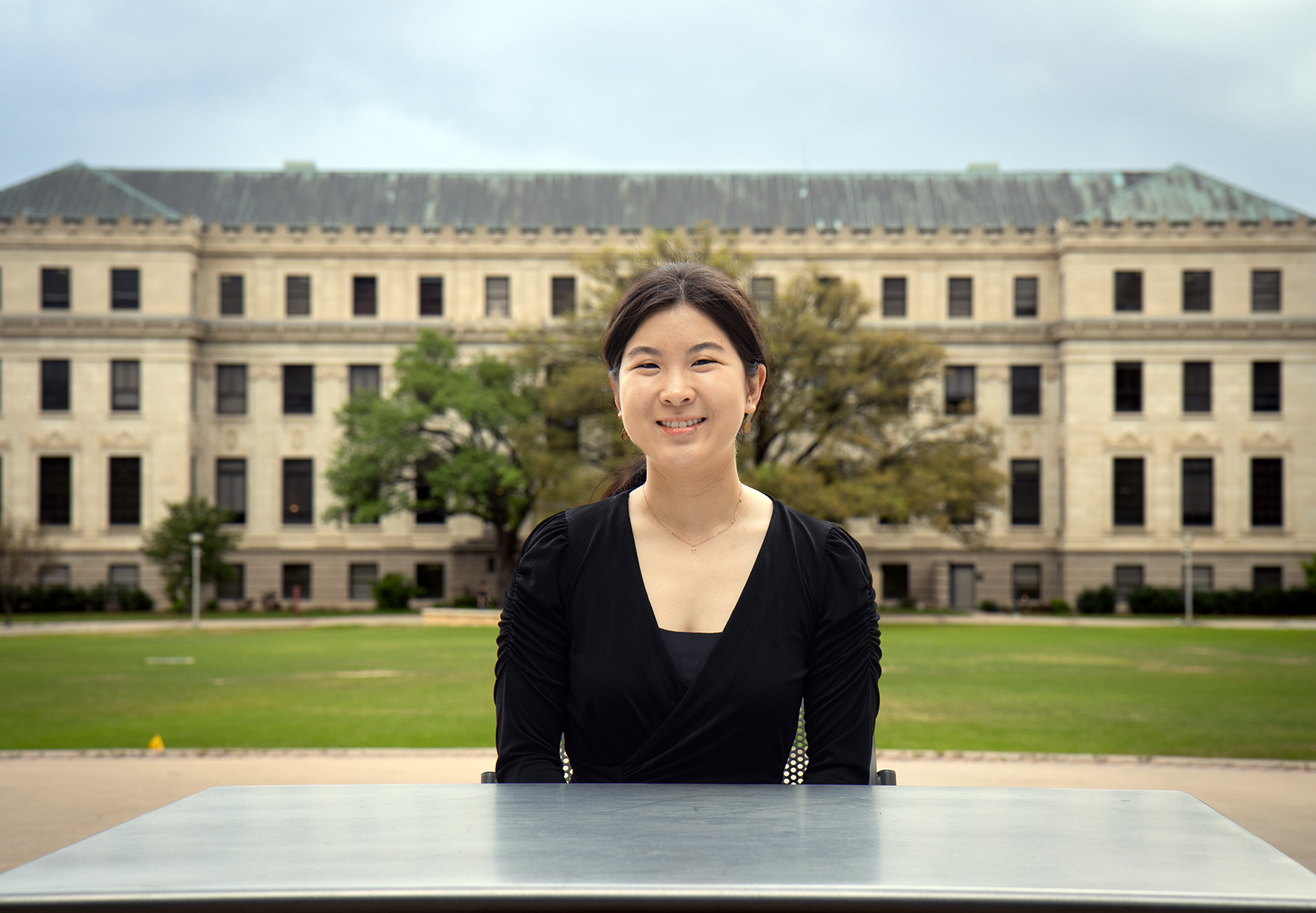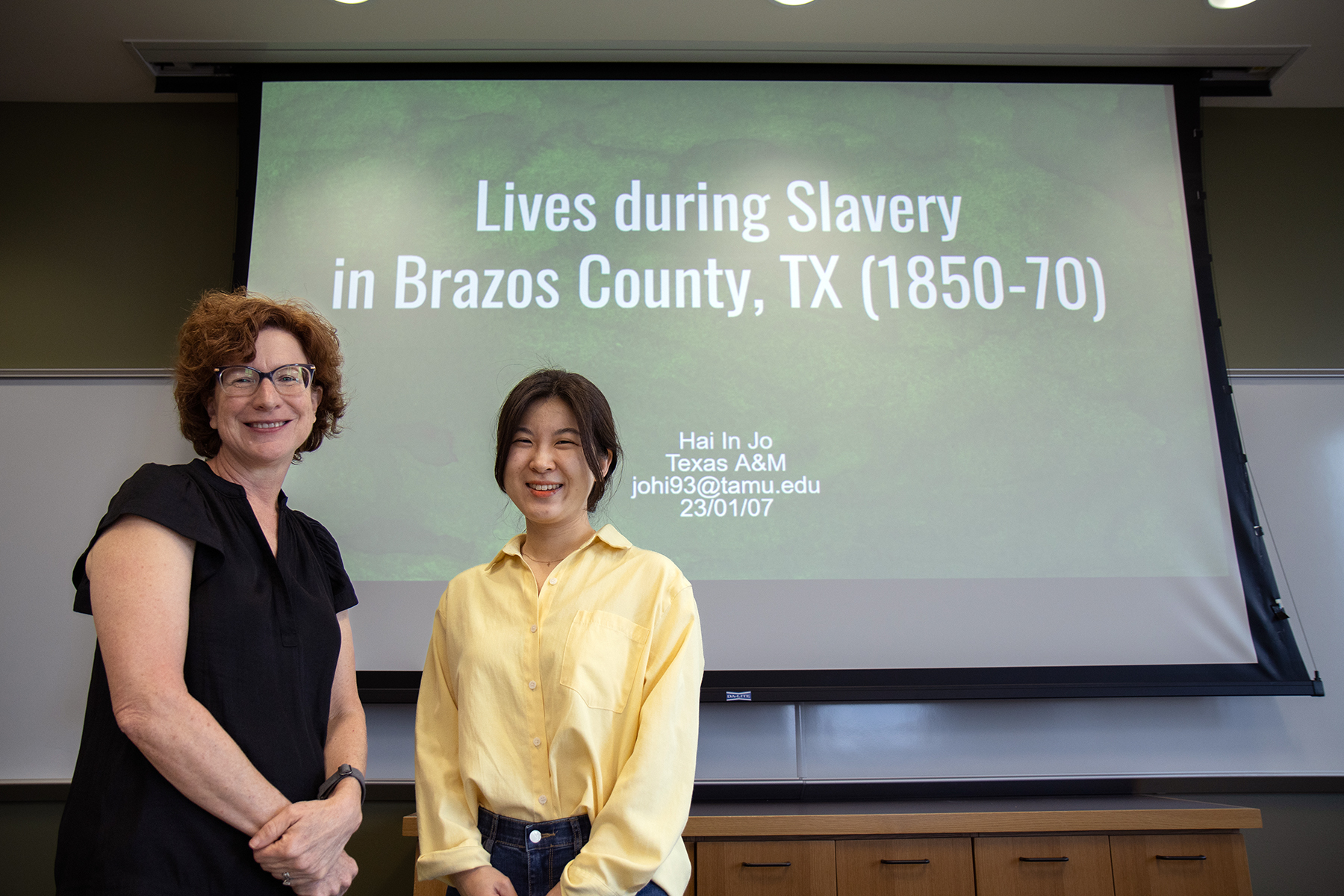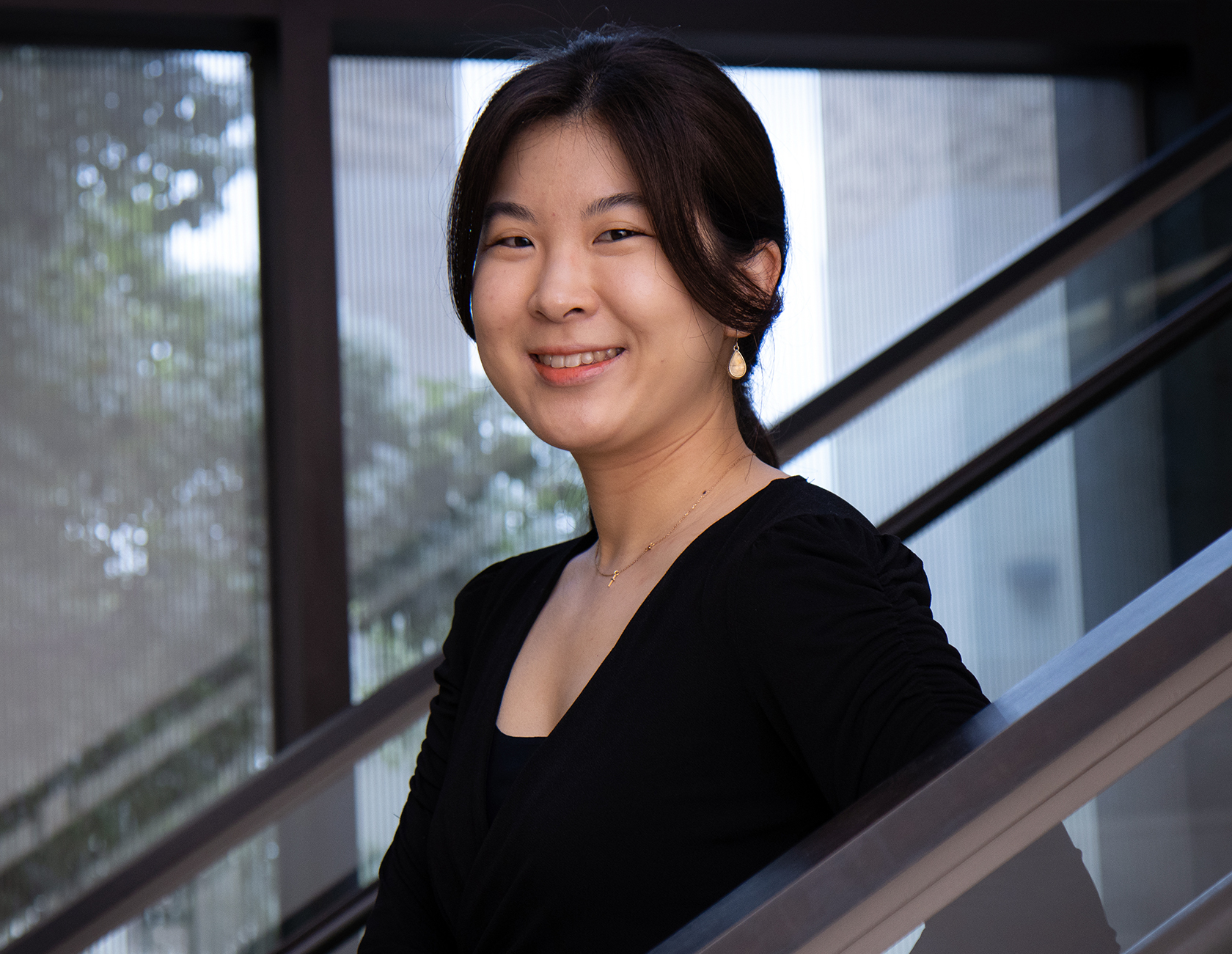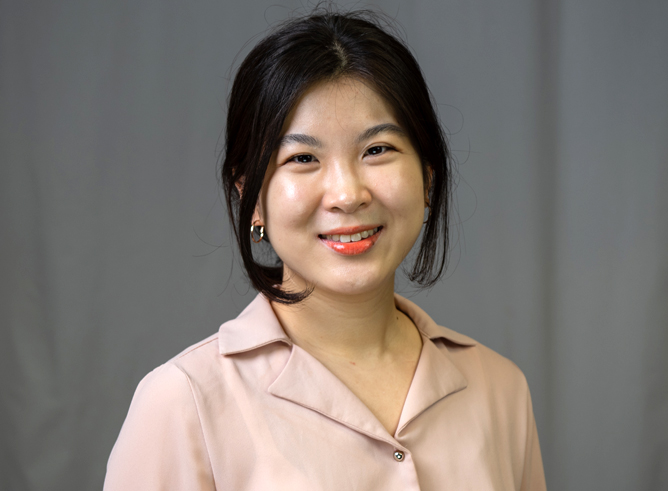
Hai In Jo, a doctoral student in the Department of English at Texas A&M University, recently had the academic experience of a lifetime as one of 12 U.S. graduate students chosen to present her research as part of the inaugural Public Humanities Incubator at one of the most prestigious events in her discipline, the 2023 Modern Language Association (MLA) Annual Convention.
Jo’s Jan. 7 presentation in San Francisco at the largest annual conference for literature and languages was the culmination of three months of intensive collaboration and mentorship aimed at broadening participating students’ research skills and perspectives.

Jo’s project, which originally was a final project for the department's Black Digital Humanities seminar, taught by Texas A&M English professor Dr. Amy Earhart, was titled “(Enslaved) Lives in Brazos County, Texas (1850-70)” and visually interpreted the reductive slave schedule used from 1850 to 1870 while also highlighting the human lives hidden behind the data. In the process of describing her efforts to empower historical Black voices through the analysis of slave records from the distant past, Jo said she gained invaluable experience in networking as well as imparting scholarly knowledge.
When she first received the news last year that she was selected for the prestigious semester-long honor, Jo described the deep gratitude and pride she felt in association with the recognition of her project’s mission.
“I remember telling my mentor that I was in awe when I first learned that I got accepted for the program,” Jo said. “It was because the program coordinator told us that this was ‘a highly selective process,’ and the opportunity to present at MLA, the biggest conference in the field of literature and languages, was an honor that I only dreamt of since starting graduate school. I was especially gratified and encouraged for my project’s value being acknowledged.”

During the incubator, Jo was paired with two other graduate students and a mentor, Dr. Colleen Tripp, an associate professor of English at California State University, Northridge, to exchange ideas and perspectives aimed at furthering each student’s research aspirations.
“This experience of connecting with fellow graduate students and my mentor afforded me the opportunity to further imagine my project’s potential collaborations and developments,” Jo said. “This cohort was a great emotional support, complete with critical peer reviewers and resourceful colleagues.”
Jo’s research during the incubator expanded on her original project conducted under Earhardt's mentorship to investigate how Black scholars have been decolonizing the exploitative historical datafication of Black people. When asked about why she chose this research topic, Jo cited the frustration she felt with the lack of clarity on the census record — an obstacle she said only inspired her to dive deeper.
“Being frustrated with not being able to search the names for those people whose names were left as blank in the slave schedule, I became invested in informing people to beware of such gaps and silences within the census record,” Jo said.

In reflecting on the three-month endeavor, Jo expressed her appreciation for not only the expansion of her knowledge but also the camaraderie and collaboration that came with it.
“I am grateful for being able to network with scholars having the same dedication to research with the public in mind from the start,” she said. “I’ve been introduced to an amazing mentor who researches a similar period in American literature and history. It was particularly exhilarating to meet students around the country who viewed knowledge itself as not a possession or a trophy of a single researcher, but a shared and collective wisdom.”
Earhart, who attended Jo’s presentation as well as the overall MLA Public Humanities Incubator Showcase panel, noted that the featured students represent some of the leading graduate programs in the country and that their collective guidance will serve Jo well as she moves forward in her career and with publication of her work.
“Hai In’s presentation was stellar, and numerous faculty and graduate student participants followed up with her after the session,” Earhart said. “I believe strongly in these public-facing projects which are gaining increasing currency in academia. I’m also thrilled to see one of our Ph.D. students compete at the national level with other such exemplary students. This is an achievement well worth celebrating.”
Hai In’s presentation was stellar, and numerous faculty and graduate student participants followed up with her after the session. I believe strongly in these public-facing projects which are gaining increasing currency in academia. I’m also thrilled to see one of our Ph.D. students compete at the national level with other such exemplary students. This is an achievement well worth celebrating.
